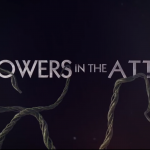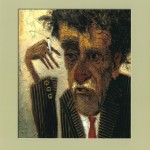Every Monday in Books Besides the Bible, Ethan Bartlett considers the value and pleasure of reading for Christians.
While I don’t know how widespread this perception is, I’ve had several people — all of them pastors or lay Bible teachers — immediately ask me something like, “Isn’t the worldview of science fiction inherently anti- or at least un-Christian, since it views science as the ultimate savior of mankind?” after discovering that I’m a fan of the genre. The first few times this happened, it took me by surprise; I had never particularly thought about the genre in this light, even though I was familiar with particular authors who did tend to assume that science would eventually replace religion and that technology would save us all.
All of the questioners were middle-aged, meaning their perception of science fiction was probably formed during or just after science fiction’s “Golden Age” (roughly the 1940s-60s), during which most of the major science fiction being published probably did share this worldview.
There’s some additional truth to this perception: historically, science fiction is an inherently optimistic genre that tends to view scientific advances as good things. While never blind to the fact that advances have their downsides, it assumes that science will solve whatever problems it creates. (I have read at least one critic, Bruce Kawan, who claims that this optimistic attitude toward the unknown is what defines science fiction; a pessimistic attitude would make the same story a horror story.)
However, I don’t think any particular work in the genre need be anti- or even un-Christian. Jonathan Strahan, in the introduction to his 2008 anthology The Starry Rift: Tales of New Tomorrows, writes that science fiction is “an ongoing conversation about what’s happening in the world we live in and where we’re going.” Science fiction is about possible futures, and unless we’re confident about the date of the Second Coming (we’re not), it might do us good to look at those futures head-on.
The last story in Stratham’s collection is “Pinocchio” by Walter Jon Williams. It posits a future in which we’re hooked up to the internet all the time, we can change bodies at a whim, and immortality is simply a fact of everyday life since all of our information can be saved and transported to a new body. These ideas are not particularly new to science fiction — John C. Wright’s Golden Age trilogy and M.T. Anderson’s brilliant young adult novel Feed are two recent examples with similar premises — but where Williams goes is interesting.
After his girlfriend breaks up with him very publicly, the main character, a sort of ‘net celebrity, has a conversation with his mother:
Mom thinks for a moment. “What you should do is be nice to her,” she said [sic]. “Saint Paul said that doing good for your enemy is like pouring hot coals on her head.”
“A saint said that?”
My mom smiled. “He was a pretty angry saint.”
Leaving aside the correctness of the assessment of Saint Paul’s character, this is an interesting conversation to find within a story about the fairly far future. The assumption that a far-future culture descended from ours would still remember the religious influences on ours, and still make some use of them, is perfectly rational. This gets left out of science fiction stories somewhat frequently. I think the reasons, depending on the author, sometimes involve not wanting to deal with religion, and sometimes invovlve the naïve belief that technology will eventually replace religion.
Other stories in Strahan’s collection could support my point as well: Cory Doctorow’s story “Anda’s Game” involves an inherently futuristic social-justice problem, Greg Egan’s “Lost Continent” is about social compassion and the lack thereof, and Scott Westerfeld’s story “Ass-Hat Magic Spider” is about a simple act of kindness. Each of these is inherently futuristic, as science fiction stories should be. At the same time, these are stories about human beings, and therefore contain an element of universality.
Science fiction is a look toward the future, and as Strahan says, a conversation with the present. While its optimism can be worrying to us who believe in original sin, the presence of humanity and the prevalence of humanitarian themes throughout the best science fiction stories is not necessarily a denial of human nature, but often an affirmation of the best in us.











